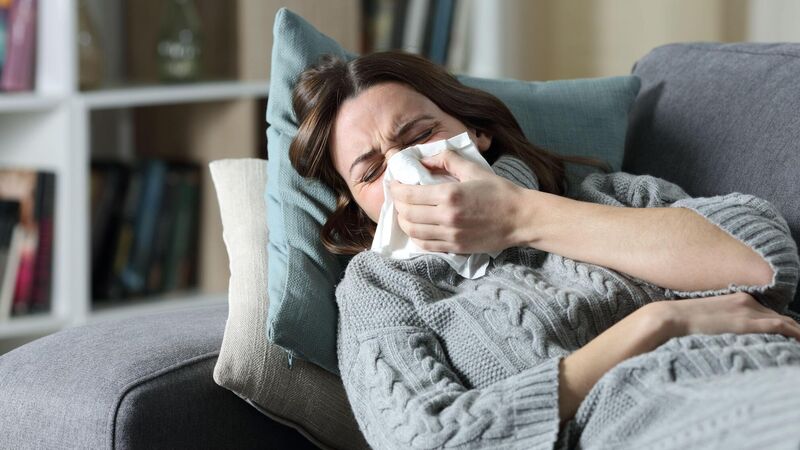Cork GP gives his advice on how people can try to avoid infections this winter

Dr John Sheehan of Blackpool Bridge Surgery, who is also a Fianna Fáil councilllor, said that there are lots of viral infections around at this time of the year, as there always are, but that there is a particularly high number at present.
A Cork GP has shared his advice on how people can stay as safe as possible this winter and help to stop the spread of infections.
Dr John Sheehan of Blackpool Bridge Surgery, who is also a Fianna Fáil councilllor, said that there are lots of viral infections around at this time of the year, as there always are, but that there is a particularly high number at present.
“During Covid, we saw very few Respiratory Syncytial Virus (RSV), influenza, and other viral infections because people weren’t mixing, they were wearing masks and washing hands and all those practices are generally good for preventing infections.
“This year is different in that it’s the first year in a few years where there’s a very high level of mixing of people and peoples’ immunity, particularly younger children, haven’t been exposed to these before also.”
Dr Sheehan said the HSE’s ‘Under the weather’ advice is “very useful”, as well as advice in relation to mask-wearing if you have a cough, avoiding people if sick, and hand hygiene, tips which he described as “very important as well”.
“You usually have so much mixing and mixing of generations at this time of year and some people are vulnerable so it’s about being cautious and aware that if you are feeling sick just take those precautions and try not to spread it.”
Offering his advice on the Strep A bacterial infection which has caused some concern among parents recently, Dr Sheehan shared the signs and symptoms of the infection and what actions parents should take if they notice their child is particularly unwell.

“Usually when people get it, they tend to present with things like tonsillitis, scarlet fever where they have a strawberry tongue where your tongue is literally bright red, some people also present with joint and muscle pain and a high temperature.
“The big thing is they are usually sicker than they usually are and they sometimes get a rash like a red sandpaper-like rash that you’d almost feel more than see when you put your hands along it.
“The three F’s are the big thing to look out for. Is the child or the baby feeding, do they have a fever and what is their form like?
“Parents are very good at knowing when their child is off form and not themselves. Particularly with smaller children and toddlers, it can be hard to judge but they just know that they’re not right and not themselves.” Dr Sheehan encouraged parents who may be worried about their child to contact their GP or the out-of-hours service SouthDoc.
“I know practices are busy and SouthDoc is busy but if they’re worried then that’s the appropriate thing to do.
“Giving people Calpol or Nurofen is always useful too because it gives you a good idea if they rally after that, then it’s more likely viral but if they’re persistently sick then they should be seen.
“The rate of Strep infections is usually very low. 20% of us carry the bug naturally in our system normally and usually, it tends to cause things like tonsillitis and so on, so it’s very rare that it causes a severe disease but when it does it’s obviously very significant and very serious,” he said.









 App?
App?


